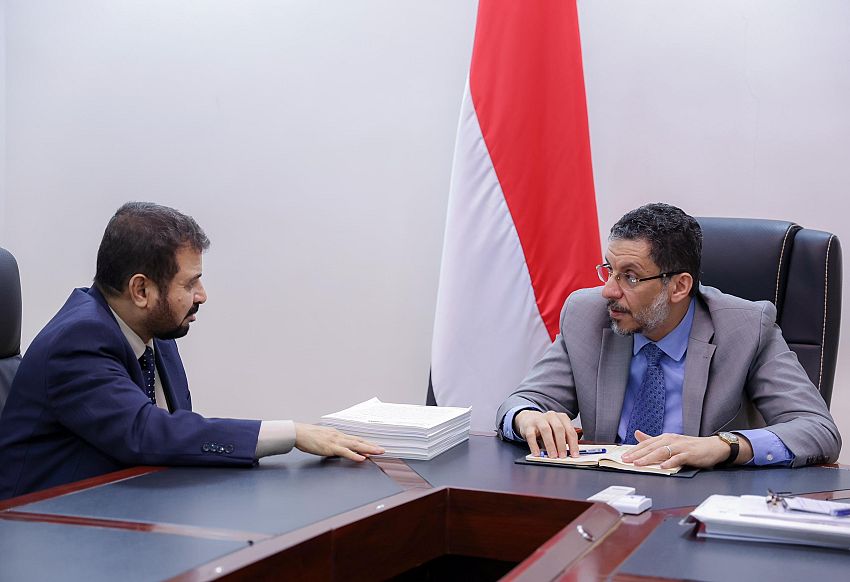


Barran Press
On November 12, 2024, Yemeni Prime Minister Ahmed Awdh bin Mubarak announced the referral of the Aden Refinery case to the public prosecutor, emphasizing the need to strengthen oversight, auditing, and accountability measures.
This announcement came as he received reports from the Central Organization for Control and Auditing regarding the operations of 12 government institutions. The reports were part of his initial visit to the organization following his appointment as prime minister, according to Yemen's official news agency, Saba.
Among the files presented to the prime minister by the head of the Central Organization for Control and Auditing, Judge Abu Bakr Al-Saqaf, were reviews of the accounts and operations of the Aden Free Zone Administration, the Aden Refinery Company, the General Ports Authority of Aden, the Yemeni Oil Company and its provincial branches, the Arabian Sea Ports Authority, the Yemeni Oil Investments Company, the General Authority for Maritime Affairs, the Geological Survey and Mineral Resources Authority, the General Authority for Land Transport Regulation, and the Yemeni Gas Company in Marib.
The reports also included an evaluation of tax performance at the Tax Authority and its offices, as well as the Executive Unit for Large Taxpayers and its branches.
The prime minister directed relevant ministries and institutions to respond to the findings in the reports and referred serious violations and crimes to the public prosecutor for accountability.
He also called for the continuation of evaluations and reviews of other government institutions, facilitating the work of the Central Organization for Control and Auditing, and warned that any refusal to cooperate would be considered a crime obstructing the organization’s work, with legal actions to follow.
Bin Mubarak stressed that the government would not tolerate any entity that fails to provide its financial data for review, emphasizing the importance of transparency and accountability in addressing both financial and administrative irregularities.
He stated, “Corruption in peace is a crime, and in war, it is treason. Combating it is a national and moral responsibility that requires cooperation with all regulatory institutions to instill accountability and fight corruption based on transparent and objective principles, without selectivity.”
In February, Bin Mubarak submitted a list of institutions to the Central Organization for Control and Auditing for initial monitoring and review, reiterating his commitment to implementing the organization’s recommendations based on the review results.